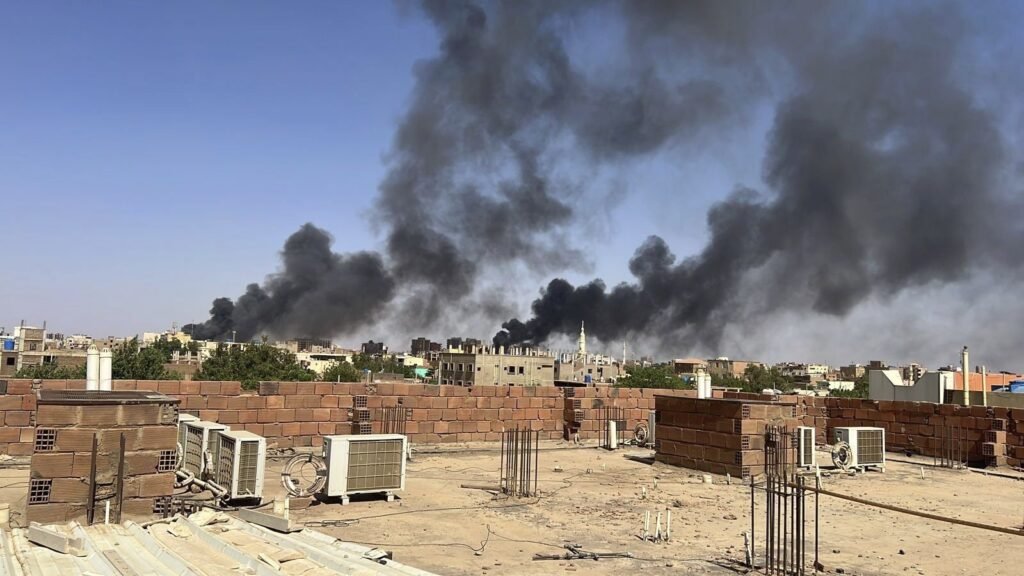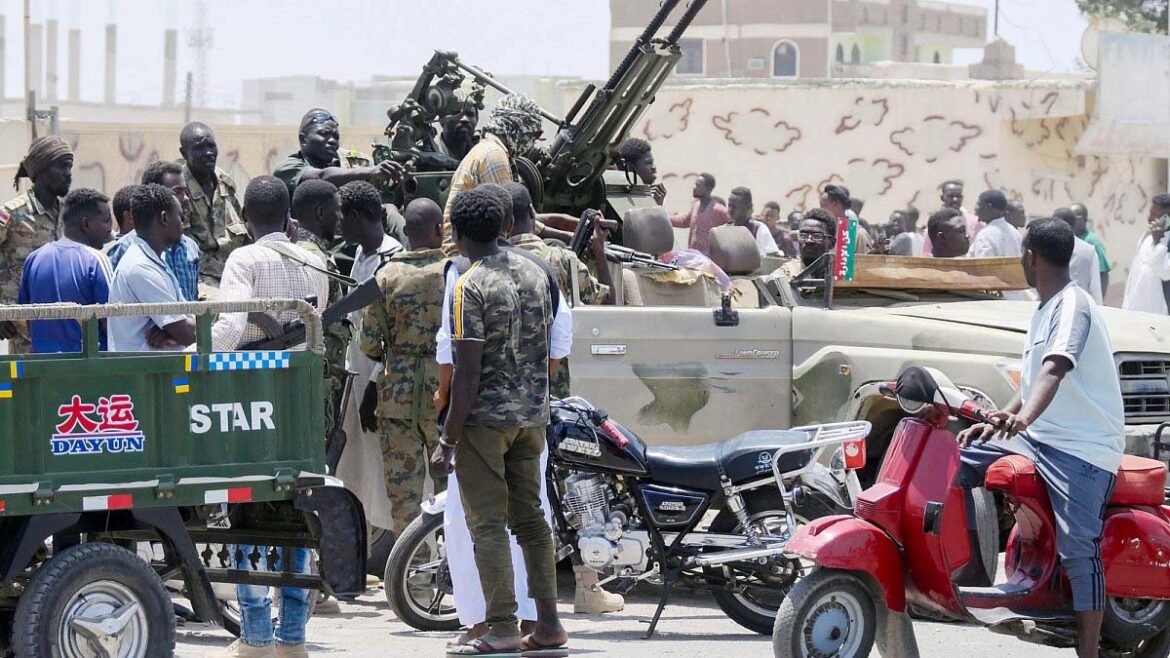The on-going conflict in Sudan has raised significant concerns on the international stage, and there are valid reasons behind this alarm. Sudan holds immense strategic significance due to its size, being the third largest country in Africa, as well as its location spanning an unstable and geopolitically crucial region.
The repercussions of military and political developments in the capital, Khartoum, reverberate throughout some of the most vulnerable areas of the continent. With its position straddling the Nile River, Sudan’s destiny holds a nearly existential importance not only for the country itself but also for its neighbouring nations.
The complex aftermath of overthrowing Bashir
The significance of overthrowing the Bashir regime cannot be overstated. After ruling Sudan for nearly three decades, he was removed from power following popular protests triggered by skyrocketing bread prices. During his tenure, South Sudan seceded from the north, and the International Criminal Court issued an arrest warrant against Bashir for alleged war crimes committed in the separatist Darfur region.
You can also read: Evacuation of Bangladeshis from Sudan: An mammoth effort by foreign ministry
Following Bashir’s removal, Sudan experienced an uneasy power-sharing arrangement between the military and civilian groups. However, in 2021, the power-sharing government was dissolved by the armed forces, bringing an end to the delicate alliance.
Reports emerged that Ahmed Haroun, a former Sudanese minister wanted by the International Criminal Court for war crimes, and other figures from the previous regime were released from prison during the chaos that ensued. Unconfirmed reports suggested that Bashir himself was among those released. However, Sudan’s Police media office and sources familiar with the matter revealed that Bashir remains in the custody of the Sudan Armed Forces at a military hospital in Omdurman, west of Khartoum.
The Rapid Support Forces (RSF) play a prominent role in Sudan as a paramilitary group, with its leader, Mohammad Hamdan Dagalo, experiencing a rapid ascent to power. During the Darfur conflict in the early 2000s, Dagalo led the infamous Janjaweed forces, which were implicated in human rights violations and atrocities.
In the face of international criticism, Bashir transformed the group into paramilitary forces called the Border Intelligence Units. Gradually, these forces were incorporated into the country’s intelligence services. In 2013, Bashir created the RSF, a paramilitary group under his supervision and led by Dagalo.
However, in 2019, Dagalo broke ranks with Bashir, but not before his forces indiscriminately fired upon a pro-democracy sit-in opposing Bashir in Khartoum. Tragically, this violent crackdown resulted in the loss of at least 118 lives. Subsequently, Dagalo was appointed as the deputy of the transitional Sovereign Council, which governed Sudan in partnership with civilian leadership.
What is going on in Sudan now?
The recent wave of violence in Sudan has shattered hopes of a peaceful transition to civilian rule, as fierce fighting has erupted between forces loyal to two rival generals, leaving civilians to bear the brunt of the conflict.
The on-going clashes in Sudan revolve around two prominent figures: Abdel Fattah al-Burhan, Sudan’s military ruler and head of the army, and General Mohamed Hamdan Dagalo, also known as Hemedti, who serves as the country’s deputy and leads the Rapid Support Forces (RSF) paramilitary group.
Al-Burhan and Hemedti were previously allies, working together to overthrow former Sudanese President Omar al-Bashir in 2019 and playing significant roles in the subsequent military coup in 2021.
However, tensions heightened during the negotiations surrounding the inclusion of the RSF within the country’s military as a component of the strategy to restore civilian rule.

The unrest has claimed the lives of at least 459 people, and more than 4,000 have been injured, according to the World Health Organization. The situation in Khartoum, the capital of Sudan, has deteriorated to the extent that some parts have become war zones.
Volker Perthes, the UN Secretary-General’s Special Representative for Sudan, reported that the ceasefire “seems to be holding in some parts” but that there were still reports of sporadic shootings and troops being relocated.
The geopolitical complexity of Sudan
In their quest for power and control, Sudan’s generals, who have long been involved in the local economy and faced allegations of corruption, have sought foreign partners. They have invited Gulf states to invest in the vast agricultural potential of the fertile soil along the Nile River.
However, when it comes to gold, more dubious dealings have emerged, particularly with Russia’s Wagner group. The Wagner group has been accused of smuggling gold out of Sudan. The head of Wagner, Yevgeniy Prigozhin, has been targeted by the US Treasury for exploiting Sudan’s natural resources for personal gain and spreading malign influence online through his “troll farm.”
Russia’s interests in Sudan extend beyond gold. The country has long sought to establish a military base in Port Sudan, located on the stark coastline of eastern Sudan and overlooking the Red Sea. By securing a military base in Port Sudan, Moscow would gain access to one of the world’s busiest and most contested sea lanes, providing significant influence in the region. Negotiations for the base have been underway between the Kremlin and Sudan’s military government, which came to power through a coup in 2021.
Given these developments, numerous governments are vying to influence events in Sudan. The immediate focus is on ending the conflict between the army and the RSF paramilitary group before it escalates further and potentially transforms into a more complex civil war.
Beyond that, some foreign governments are eager to guide Sudan towards democracy, which many had hoped would follow the overthrow of Sudan’s brutal ruler, Omar al-Bashir, in 2019. However, other states may prefer to support another strongman and undermine the will of the Sudanese people, who have long anticipated the realization of their country’s potential as one of Africa’s struggling giants.
Neighbour countries’ reliance on Sudan’s resources
Downstream, Sudan’s actions impact water-dependent Egypt, a nation highly reliant on the Nile’s resources. Upstream, Sudan’s decisions have implications for land-locked Ethiopia, which has ambitious plans for hydro-electric projects that directly affect the river’s flow. Thus, any changes in Sudan’s policies and actions hold substantial consequences for the entire Nile River basin.
Sudan shares borders with seven countries, each facing their own unique security challenges that are intricately linked to the political dynamics in Khartoum. The stability and governance of Sudan, therefore, have significant ramifications for regional security and stability in this interconnected web of nations.
Considering the country’s size, geographic position, and the complex relationships it maintains with its neighbours, Sudan’s internal conflicts and political developments have far-reaching implications that extend beyond its borders. It is no wonder that the international community closely monitors and expresses deep concerns regarding the situation in Sudan.
Impact in African territory
The unrest in Sudan’s western region of Darfur has a tendency to spill over into neighbouring Chad, and vice versa. The porous borders in the region facilitate the movement of weapons and fighters, not only from Chad but also from the war-torn Central African Republic. A similar dynamic exists with Libya, situated to the northwest of Sudan.
Sudan shares a border with the Tigray region in northern Ethiopia, which has recently experienced a protracted conflict involving Eritrea, an unpredictable and highly militarized autocracy. Tensions also exist along other parts of the Ethiopia-Sudan border, which are contested in certain areas.
To the south, Sudan faces the relatively new nation of South Sudan. South Sudan gained independence from Sudan in 2011 after one of Africa’s longest and bloodiest civil wars. However, the border between the two countries remains unstable.
Soon after its independence, South Sudan descended into a large-scale civil war, raising concerns that Sudan could face a similar fate. South Sudan took control of most of the region’s valuable oil fields upon independence, leaving Sudan economically disadvantaged. This situation indirectly contributes to the current crisis in Khartoum, as rival military factions vie for control over dwindling economic resources such as gold and agriculture.
Uncertain Future
While the Sudanese armed forces are estimated to be around 210,000 to 220,000 in number, the RSF paramilitary group, with approximately 70,000 members, possesses superior training and equipment.
The international community is deeply concerned, evident by the UN Security Council’s recent meeting on the Sudan crisis. Beyond the well-being of civilians, there are additional interests at stake, considering Sudan’s abundant resources and strategic location.
Egypt and South Sudan, neighbouring countries, have offered mediation efforts. However, in the absence of a resolution, the Sudanese people continue to endure further suffering and hardships.


